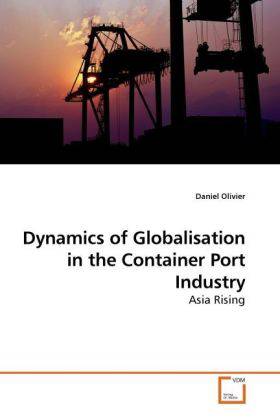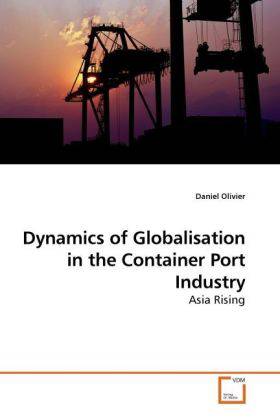
- Afhalen na 1 uur in een winkel met voorraad
- Gratis thuislevering in België vanaf € 30
- Ruim aanbod met 7 miljoen producten
- Afhalen na 1 uur in een winkel met voorraad
- Gratis thuislevering in België vanaf € 30
- Ruim aanbod met 7 miljoen producten
Zoeken
Dynamics of Globalisation in the Container Port Industry
Asia Rising
Daniel Olivier
Paperback | Engels
€ 77,95
+ 155 punten
Omschrijving
Institutional change of the 1990s in port sectors worldwide has been followed by the emergence of port investing/operating transnational corporations (TNC): firms operating container terminals across various regions, countries or continents. These fundamental changes coincide with a dramatic spatial shift with the Pacific Basin now host to the world s largest container ports as well as the world s leading port investors. A small number of powerful TNCs have become the leading agents of change. This book outlines an economic geography of these emerging transnational firms. It is the first comprehensive effort to conduct an analysis of globalisation forces in the container port industry at a firm-level. Given their rapid ascent to the industry's top ranks, emphasis is placed on Asian TNCs. Core components of the internationalisation process are considered: spatial strategy, foreign market entry processes, organisational change, state-TNC relations, inter-corporate relations, logistical strategies and policy outcomes are analysed and their theoretical implications explored.
Specificaties
Betrokkenen
- Auteur(s):
- Uitgeverij:
Inhoud
- Aantal bladzijden:
- 472
- Taal:
- Engels
Eigenschappen
- Productcode (EAN):
- 9783639229233
- Uitvoering:
- Paperback
- Afmetingen:
- 150 mm x 220 mm
- Gewicht:
- 638 g

Alleen bij Standaard Boekhandel
+ 155 punten op je klantenkaart van Standaard Boekhandel
Beoordelingen
We publiceren alleen reviews die voldoen aan de voorwaarden voor reviews. Bekijk onze voorwaarden voor reviews.







